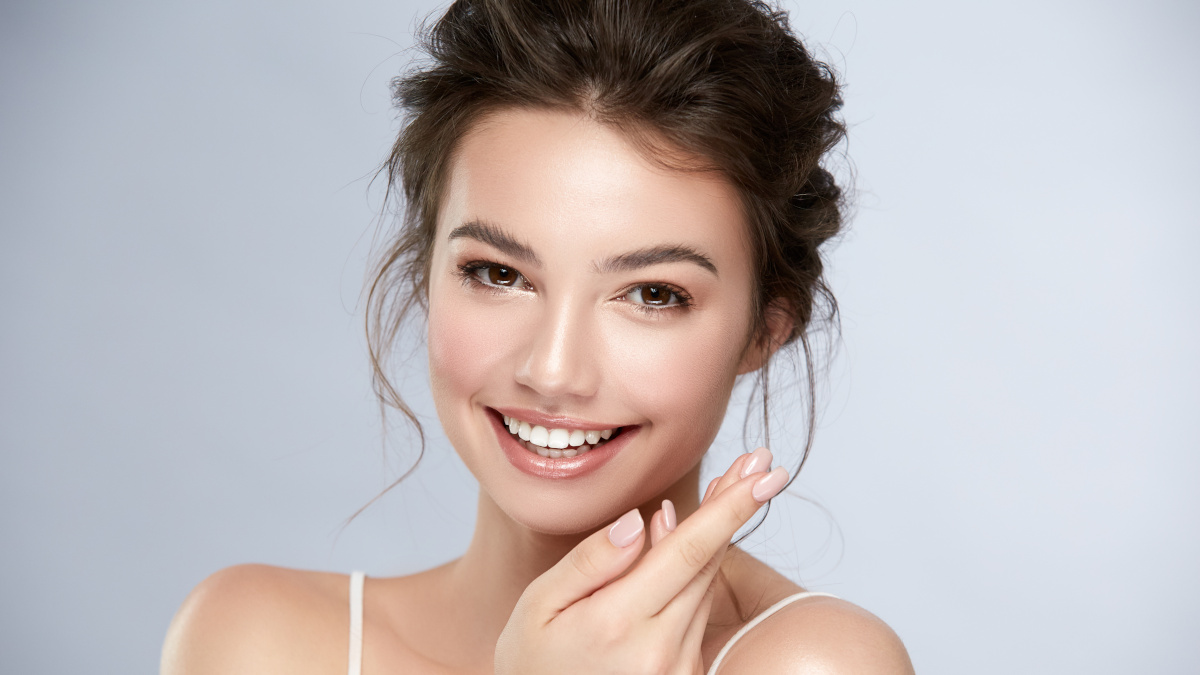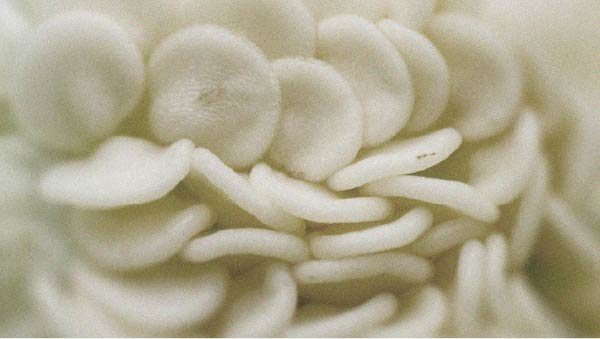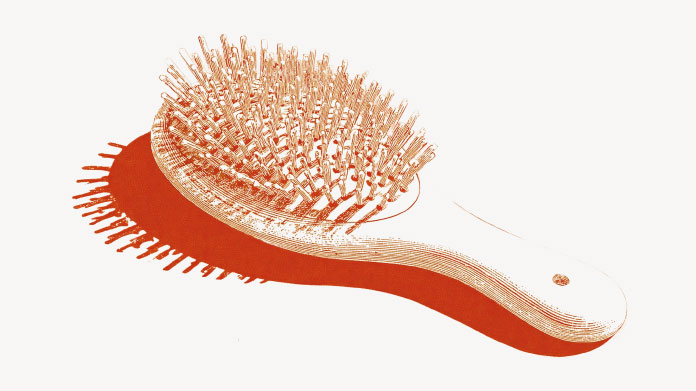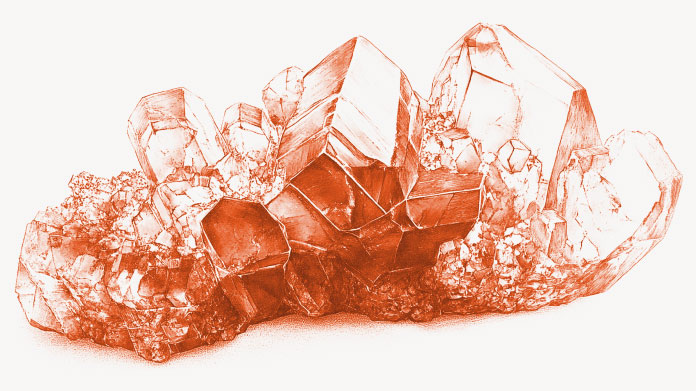7 natural skin care substances
Beyond the classic moisturising creams, what more can I do to look after my skin effectively, without using any chemicals? Discover 7 natural compounds indispensable to your skincare routine.

To keep your skin hydrated … drink plenty of water!
Let’s start with a simple yet essential tip: if you want to have well-hydrated skin, it’s imperative to ... drink enough water every day.
It’s thought adults need to drink around 1.5 litres of water a day (approximately 6-8 glasses) in order to maintain an adequate water supply to the dermis, the skin’s deeper layer.
Conversely, it’s important to avoid alcohol, cigarettes, excessive sun exposure … in short, anything that increases water evaporation and impairs hydration in general, and hydration of the skin in particular (1).
Half a lemon applied to the face
Endowed with natural cleansing properties, lemons are rich in acids, flavonoids and vitamin C. Used topically, lemon juice’s acids remove dead skin cells, and reduce dandruff and bruising (2).
Do you have oily skin or problem blackheads? To purify your skin, add a teaspoon of sugar and a few drops of sweet almond oil to half a lemon (organic and untreated). Gently rub the moistened lemon on your face using circular movements to exfoliate your epidermis.
Which are the best vitamins for the skin?
Healthy skin also requires a vitamin-rich diet. Vitamins A, B2 and B3 are recognised for helping to maintain normal skin, while vitamin C plays a role in normal collagen formation which is needed for healthy skin function (3-4). A probiotic formulation such as Derma Relief, for example, is enriched with vitamins B2 and C.
In terms of skin health, the most popular vitamin remains B8, or biotin. This essential ‘beauty vitamin’ helps maintain healthy skin, mucous membranes and even hair. It is found in foods such as chicken livers, beef kidneys, brewer’s yeast...
Certain dietary supplements offer a convenient way of increasing your biotin intake. They include, for example, Biotin, the beauty supplement Daily Beauty (which also contains collagen peptides), and Natural Skin Formula (also rich in hyaluronic acid).
The secrets of a cucumber mask
With a composition that’s 95% water, as well as being packed with vitamins and minerals, cucumber has long been used for its beauty benefits(5).
Placing slices of cucumber on your eyes for a short time can, for example, help reduce puffiness and dark rings. Applying a mask of crushed cucumber mixed with natural yogurt to the face can help smooth the skin and brighten the complexion.
An extra little tip – chill your cucumber in the fridge for 15 minutes before applying to your face. The coldness conferred by the cucumber helps to decrease blood flow and reduce bags under the eyes... You can also use cold compresses or ice cubes wrapped in a towel.
Consume turmeric
Did you know that in addition to its key antioxidant properties, turmeric also helps to maintain healthy skin? (6). In fact, one of its main active ingredients, curcumin, is regularly used to treat dermatological problems (7).
All of which makes cooking up a delicious curry even more appealing, right? And to gain even more of turmeric root’s benefits on a daily basis, you could also take a course of turmeric supplements (such as Super Curcuma).
The power of organic aloe vera
A familiar ingredient in restorative skin creams, aloe vera is a succulent plant widely used since ancient times.
This special plant can also be ingested in the form of dietary supplements to help maintain healthy skin (particularly the epithelial layer), as well as to stimulate metabolism and improve immunity (8-10). To ensure good quality, choose a natural organic aloe vera gel (such as Organic Aloe Vera).
What role does zinc play in skin health?
Last but not least, the trace element zinc also helps to maintain healthy skin and is thus a great ally to your skincare regimen.
In fact, the skin undergoes constant cell renewal, a process which places great demands on enzymes and zinc based proteins, hence the importance of this mineral (11).
In terms of zinc-rich foods, good sources include oysters, calves’ liver, braised beef and rye bread. To boost your intake, you could take a beauty supplement that contains zinc. Choose, for example, the excellent Skin Ceramides, rich in zinc as well as ceramides, essential components of the skin’s hydrolipidic barrier.
References
- Goodman GD, Kaufman J, Day D, et al. Impact of Smoking and Alcohol Use on Facial Aging in Women: Results of a Large Multinational, Multiracial, Cross-sectional Survey. J Clin Aesthet Dermatol. 2019;12(8):28-39.
- M.Mohanapriya, Dr. Lalitha Ramaswamy, Dr.R. Rajendran, HEALTH AND MEDICINAL PROPERTIES OF LEMON (CITRUS LIMONUM), International Journal Of Ayurvedic And Herbal Medicine 3:1 (2013)1095:1100
- Shapiro SS, Saliou C. Role of vitamins in skin care. Nutrition. 2001 Oct;17(10):839-44. doi: 10.1016/s0899-9007(01)00660-8. PMID: 11684391.
- EFSA Register of Questions – europa.eu
- H. Murad, M.A. Nyc, EVALUATING THE POTENTIAL BENEFITS OF CUCUMBERS FOR IMPROVED HEALTH AND SKIN CARE, Journal of Aging Research & Clinical Practice©, Volume 5, Number 3, 2016
- EFSA Register of Questions – europa.eu
- Vaughn AR, Branum A, Sivamani RK. Effects of Turmeric (Curcuma longa) on Skin Health: A Systematic Review of the Clinical Evidence. Phytother Res. 2016 Aug;30(8):1243-64. doi: 10.1002/ptr.5640. Epub 2016 May 23. PMID: 27213821.
- Foster M, Hunter D, Samman S. Evaluation of the Nutritional and Metabolic Effects of Aloe vera. In: Benzie IFF, Wachtel-Galor S, editors. Herbal Medicine: Biomolecular and Clinical Aspects. 2nd edition. Boca Raton (FL): CRC Press/Taylor & Francis; 2011. Chapter 3
- Sánchez M, González-Burgos E, Iglesias I, Gómez-Serranillos MP. Pharmacological Update Properties of Aloe Vera and its Major Active Constituents. Molecules. 2020;25(6):1324. Published 2020 Mar 13. doi:10.3390/molecules25061324
- EFSA Register of Questions – europa.eu
- James R. Schwartz PhD Randall G. Marsh PhD Zoe Diana Draelos MD, Zinc and Skin Health: Overview of Physiology and Pharmacology, Dermatologic Surgery, Volume31, Issue s1, July 2005, Pages 837-847
1 Days
great experience
Easy ordering, fast deliver, very professionally.
Natasa
4 Days
this company and its products are…
this company and its products are perfect: I have been their customer for three years , prices are reasonable for the high quality they offer , the products are of very good quality not just plainly "normal" , delivery is quite fast. we are very satisfied with them.
Gabriel Diacakis
5 Days
TOP service TOP products will buy again…
TOP service TOP products will buy again and again
PINOTTI Giorgio
7 Days
Trustworthy company with tested products
Trustworthy company with tested products
Trusted
11 Days
Efficiency and speed
Efficiency and speed
Cuccie
13 Days
GOOD BRAND IN FOOD COMPLEMENTS
GOOD BRAND IN FOOD COMPLEMENTS - SERIOUS WITH GOOD DOCUMENTS AND DETAILS SCIENTIST. AND SERIOUS HONNEST COMMERZIALISATION. I HAVE TRUST IN THEIR PRODUCTS.
FENOGLIO Guy
14 Days
Very good experience
Very good experience, the products arrived in time, in perfect condition and are good quality. Thank you.
GABI TIRCOCI
20 Days
very good expereince
very good expereince
Jelena Đaković
20 Days
Very good products.
Very good products.
Agnes BENDSAK
22 Days
Just OK
Just OK, ordering from company for many years and being safisfied
Lynn Mae
23 Days
Recomendo
Produtos encomendados são recebidos atempadamente e de acordo com o anunciado! Muito satisfeita!
Carla Sofia
23 Days
Everything is great!
Everything is great!
Jonas
28 Days
The delivery was fast and the product…
The delivery was fast and the product is great
SOMMARIVA Gianni
29 Days
Great service and lots of information
Great service and lots of information
Gabi
32 Days
Service Satisfaction
I’m satisfied with the service; it fulfilled what it set out to do.
Anfhony Abreu
of experience
your money back
##montant## purchase




